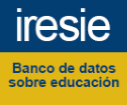The philosophy of education in the teaching-learning process
Keywords:
Filosofía de la educación, teleología, escolástica, epistemologíaAbstract
The Philosophy of Education and the teaching-learning process share a foundational and dialectical relationship. The former provides the theoretical, ethical, and epistemological principles that guide and give meaning to the latter, while educational practice constantly feeds back into and questions these philosophical frameworks. This philosophy addresses essential questions: Why educate? What knowledge is valid? What is the nature of the human being? It thereby defines the aims of education (such as forming critical citizens or preparing for the labor market), the selection of content (from universal knowledge to situated knowledge), and the values to be promoted (autonomy, justice, efficiency). These foundations materialize directly in teaching practice, determining: The teacher's role (transmitter of authority or facilitator). Student agency (passive receiver or active constructor). Pedagogical methodologies (lecture-based, dialogical, critical). Evaluation criteria (quantitative or qualitative). Every educational practice embodies, consciously or not, a philosophical stance concerning knowledge, society, and the human being. Therefore, it is impossible to separate classroom action from the conceptions that underpin it. Coherence between the philosophical dimension and concrete practice is crucial for achieving a meaningful educational system with transformative potential. This constant interaction defines the core of educational work.









